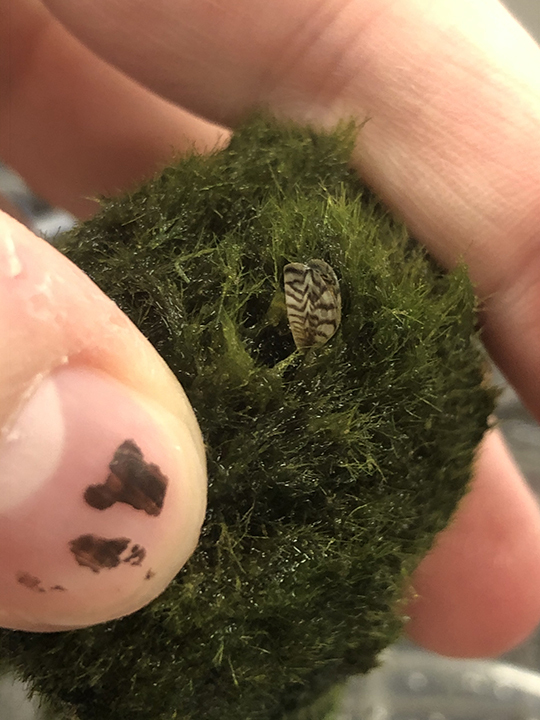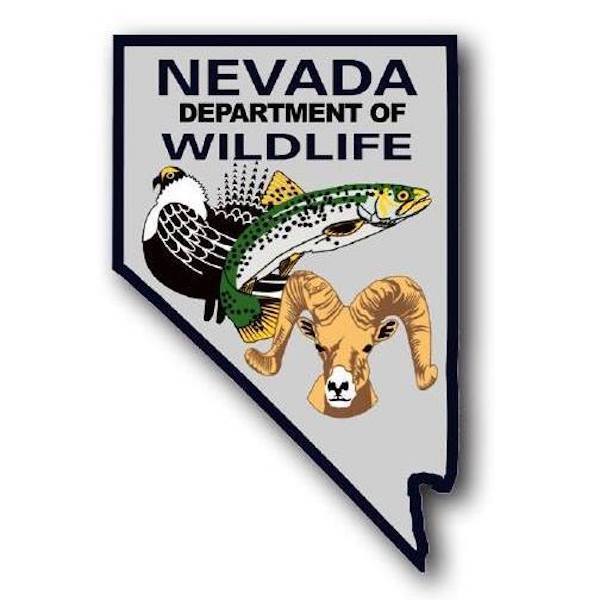From Sportfishing
Fish Report for 3-5-2021

Aquarium Products Sold Online and at Nevada Pet Stores Contaminated with Invasive Zebra Mussels
3-5-2021
Nevada Department of Wildlife
The Nevada Department of Wildlife (NDOW) is investigating reports that invasive zebra mussels have been found in aquarium products sold through online retailers and local and national pet stores in various states, including Nevada. The products contaminated with the invasive species may be labeled as Imagitarium Betta Buddy Marimo Balls, Marimo Moss Ball Plants, or similar names, and are decorative moss plants for home aquariums.
The alert comes after a Seattle pet store employee reported finding the zebra mussels in the Imagitarium Betta Buddy product. The reports were verified by both state and federal wildlife authorities. Nevada pet stores are being instructed to remove the product from shelves and contact their regional NDOW office for disposal information.
“This is a serious state and national issue,” said NDOW Fisheries Division Administrator Jon Sjöberg. “This situation poses a great risk to our waterways and our wildlife populations. Please adhere to our recommendations and do your part to keep Nevada’s water safe and clean from invasive species.”
Consumers who have purchased these products are urged to destroy them. This can be accomplished by either freezing or boiling the moss plant (see detailed disposal method info sheet attached) and disposing of it in the trash, followed by a thorough disinfection of the aquarium. Do not dispose of by any other method. Zebra mussels can remain alive for long periods out of water and can find their way into waterways via sewer systems and have devastating, irreversible effects on wildlife and aquatic habitats.
Zebra mussels are filter feeders that consume large portions of the microscopic plants and animals that form the base of the food web. The removal of significant amounts of phytoplankton from the water can cause a shift in native species and a disruption of the ecological balance. Zebra mussels often settle in massive colonies that can block water intakes and affect municipal water supplies, agricultural irrigation, and power plant operation. There is no known safe method of eradication once the mussels have become established in a large water body.
NDOW is working closely with other state and federal wildlife authorities to address and monitor the situation. For additional information, contact NDOW’s regional offices below:
WESTERN REGION OFFICE
1100 Valley Rd.
Reno, NV 89512
(775) 688-1506
EASTERN REGION OFFICE
60 Youth Center Rd.
Elko, NV 89801
(775) 777-2300
SOUTHERN REGION OFFICE
3373 Pepper Lane
Las Vegas, NV 89120
(702) 486-5127
< Previous Report Next Report >
More Reports
Nevada Department of Wildlife Reports
for Friday, March 5th, 2021
Cave Lake: Fishing Has Been Fair to Good
Comins Lake: Comins Lake Fishing Report
Illipah Reservoir: Some Open Water Around The Edges
Jakes Creek Reservoir (Boies Reservoir): 90% Covered in Unsafe Ice
Ruby Lake NWR: Very Little Change Here This Week
South Fork Reservoir: The Lake is Ice Free Except For Some Northern Coves
Wild Horse Reservoir: As of Wednesday Ice Was About 17 Inches Thick
• NDOW Eastern Fishing Report
Nevada Department of Wildlife Reports
for Wednesday, March 3rd, 2021
Lake Mead: Fishing is Expected to Pick Up This Weekend
Lake Mohave: Fish Have Been Active Near Shelves in Coves
Colorado River - Laughlin: Smallmouth Bass Action Will Start to Pick Up
Kirch Wildlife Management Area: Upper ends of Reservoirs Will be Closed Due to Waterfowl Nesting
Eagle Valley Reservoir: Ice Covering The Reservoir is Starting to Melt
Echo Canyon Reservoir: Trout Fishing Has Been Good
• NDOW Southern Fishing Report

Website Hosting and Design provided by TECK.net